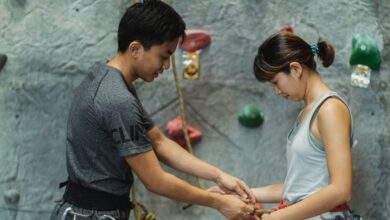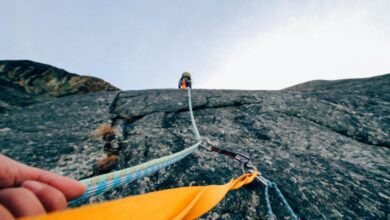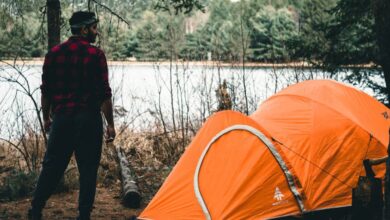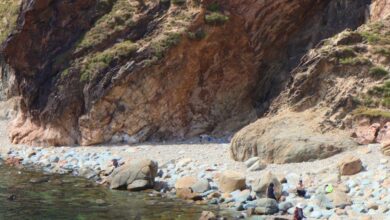How Do You Prepare for a Mountain Climbing Expedition
Mountain climbing is an exhilarating adventure that offers breathtaking views and a profound sense of achievement. However, embarking on such an expedition requires meticulous preparation to ensure safety and success. From assessing your physical fitness to gathering the right gear, every detail matters. Here’s a guide to help you prepare effectively for your mountain climbing adventure.
Physical Conditioning
Before you even think about packing your gear, assess your physical fitness. Mountain climbing demands endurance, strength, and flexibility. A comprehensive training regimen should include cardiovascular workouts, strength training, and flexibility exercises. Activities like running, cycling, or hiking can enhance your stamina. Strength training should focus on your core, legs, and upper body, as these muscles play a crucial role in climbing. Additionally, integrate yoga or stretching routines to improve flexibility, which will help prevent injuries.
Skill Development
Understanding the skills required for your expedition is paramount. If you’re a beginner, consider taking climbing courses to learn essential techniques such as belaying, rappelling, and navigating different terrain types. Join a local climbing club or team up with experienced climbers to gain practical insights and tips. Familiarize yourself with the basics of using climbing gear, including harnesses, ropes, carabiners, and protection devices. Practicing in controlled environments, like climbing gyms or local crags, will boost your confidence and hone your skills.
Research the Route
Every mountain presents unique challenges. Thoroughly research the route you plan to take, paying attention to its difficulty level, terrain, and weather conditions. Maps, guidebooks, and online forums can provide valuable insights. Take note of water sources, potential hazards, and emergency evacuation routes. Understanding the landscape allows you to anticipate challenges and adjust your plans accordingly. Knowledge of the local flora and fauna can also enhance your experience, allowing for a deeper appreciation of the environment you’ll be traversing.
Gear Up Properly
Choosing the right gear is crucial for a successful mountain expedition. Your equipment should be tailored to the specific conditions of your climb. Start with a sturdy pair of climbing boots that provide excellent grip and support. Layering is key for clothing; invest in moisture-wicking base layers, insulating mid-layers, and waterproof outer layers. Don’t forget essential accessories like gloves, hats, and sunglasses. Additionally, familiarize yourself with climbing tools such as ice axes or crampons if your expedition involves icy terrains. Create a checklist to ensure you don’t overlook any necessary items.
Nutrition and Hydration
Proper nutrition is vital for maintaining energy levels during your climb. Prior to the expedition, focus on a balanced diet rich in carbohydrates, proteins, and healthy fats. Foods like whole grains, nuts, lean meats, and fruits can provide sustained energy. On the climb, pack lightweight, high-energy snacks such as energy bars, dried fruits, and nuts. Hydration is equally important; carry a water reservoir or hydration packs to ensure you can drink frequently. Consider bringing electrolyte tablets to replenish lost salts, especially during strenuous ascents.
Mental Preparation
Mountain climbing is as much a mental challenge as it is a physical one. Cultivating a positive mindset and mental resilience is essential. Visualization techniques can help you prepare mentally for the climb. Picture yourself successfully navigating the route, overcoming obstacles, and reaching the summit. Additionally, practice mindfulness or meditation to enhance focus and manage anxiety. Surrounding yourself with supportive, like-minded climbers can also boost morale and foster a sense of camaraderie.
Safety First
Safety should always be your top priority. Familiarize yourself with basic first aid and carry a first aid kit during your expedition. Understand the signs of altitude sickness and be prepared to descend if symptoms occur. Establish clear communication protocols with your climbing team, ensuring everyone is aware of each other’s limits and capabilities. Regularly check the weather forecasts and be ready to adapt your plans if conditions change unexpectedly.
Final Thoughts
Preparation is the cornerstone of a successful mountain climbing expedition. By focusing on physical conditioning, skill development, thorough research, appropriate gear selection, nutrition, mental preparedness, and safety, you can enhance your chances of a rewarding climbing experience. Embrace the journey, enjoy the adventure, and revel in the triumph of reaching new heights.







